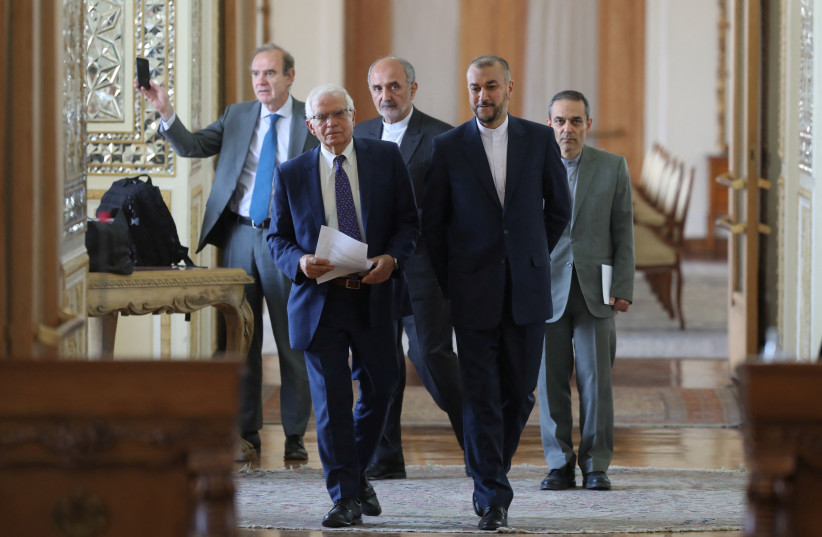
This article is more than
3 year old
Iran's indirect talks with the United States on reviving the 2015 nuclear pact will resume soon, Iranian Foreign Minister Hossein Amirabdollahian told a joint news conference with the EU's foreign policy chief in Tehran.
"We are prepared to resume talks in the coming days. What is important for Iran is to fully receive the economic benefits of the 2015 accord," said Amirabdollahian, adding that he had held a "long but positive meeting" with the European Union foreign policy chief Josep Borrell.
"We are expected to resume talks in the coming days and break the impasse. It has been three months and we need to accelerate the work. I am very happy about the decision that has been made in Tehran and Washington," Borrell said.
"We are expected to resume talks in the coming days and break the impasse. It has been three months and we need to accelerate the work. I am very happy about the decision that has been made in Tehran and Washington."
Josep Borrell
White House National Security Council spokesperson John Kirby said he could not speak on the status of the negotiations.
"But there's nothing changed about our position that a nuclear deal is the best way to prevent Iran from achieving nuclear weapons status," Kirby told reporters traveling aboard Air Force One. "We want to get them back into compliance."
Two officials, one Iranian and one European, told Reuters ahead of Borrell's trip that "two issues including one on sanctions remained to be resolved," comments that Iran's Foreign Ministry has neither confirmed nor denied.

"We agreed on resumption of negotiations between Iran and US in the coming days, facilitated by my team, to solve the last outstanding issues," Borrell tweeted, without specifying the venue.
"And the coming days mean coming days. I mean, quickly, immediately."
The United States said earlier in June it was awaiting a constructive response from Iran on reviving the 2015 deal - under which Iran restricted its nuclear program in return for relief from economic sanctions - without "extraneous" issues.
Iran's Foreign Minister Hossein Amirabdollahian last week called on Washington, which exited the deal and then imposed crippling sanctions on Tehran during the Trump administration in 2018, to "be realistic."
The deal appeared on the brink of revival in March when the EU, which is coordinating negotiations, invited ministers to Vienna to seal it after 11 months of indirect talks between Tehran and President Joe Biden's administration.
But the talks have since been bogged down, chiefly over Tehran's insistencethat Washington remove the Islamic Revolutionary Guard Corps (IRGC), its elite security force, from the US Foreign Terrorist Organization (FTO) list.